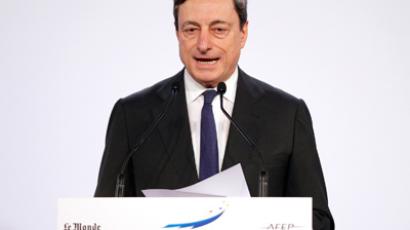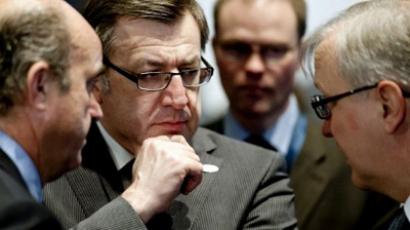Eurozone finances: Pouring oil on water

If eurozone countries do not make necessary steps to restructure their debts, the current period of calm, may quite be calm before the storm.
A report by PriceWaterhouseCoopers claims policy action by the European Central Bank and the package agreed with Greece has bought time, but the recovery remains fragile. As a result, euro zone output is likely to shrink this year.
The ECB is currently undertaking the second of its Long Term Refinancing Operations (LTRO), which is pumping in a total of a trillion Euro of cheap loans into the banking system. These loans allow banks to rollover debt and start to restructure their balance sheets.
The ECB action is buying time for the most vulnerable economies to make progress on the necessary fiscal and structural reforms. But it does not solve all of their problems, and there is a risk the countries will not make enough progress by the time the effects of the liquidity programme fade.
PriceWaterhouseCoopers quotes as examples the liquidity programmes in the US and UK, suggesting their impacts appeared to be fairly short lived.
Nevertheless, this operation is a sign the ECB is eager to take decisive policy actions, and it has scope for further expansion should signs of market distress reappear. The size of the ECB’s liquidity operation is still smaller than the operations of the Bank of England and the Federal Reserve.
The head of the International Monetary Fund Christine Lagarde expressed a similar view on the eurozone economic health -the global economy remains fragile, cautioning that the financial system in Europe is still "under heavy strain" and that debt levels are "too high." She acknowledged though that there have been signs of stabilization in recent months. The US seems to be on a path to a more lasting recovery with stronger economic growth and job creation in the country. Lagarde said it’s another moment for US economic leadership.














